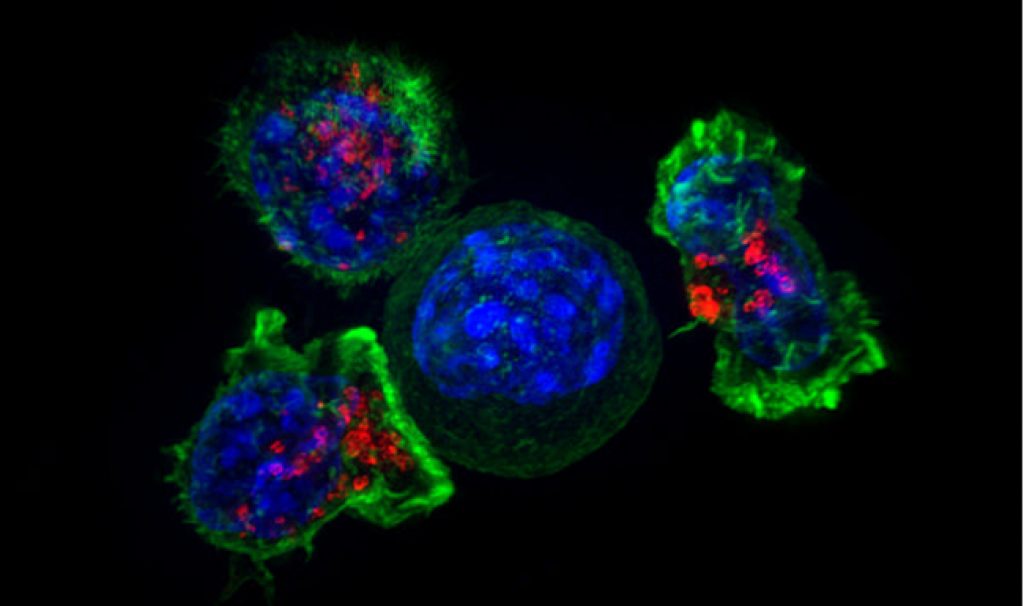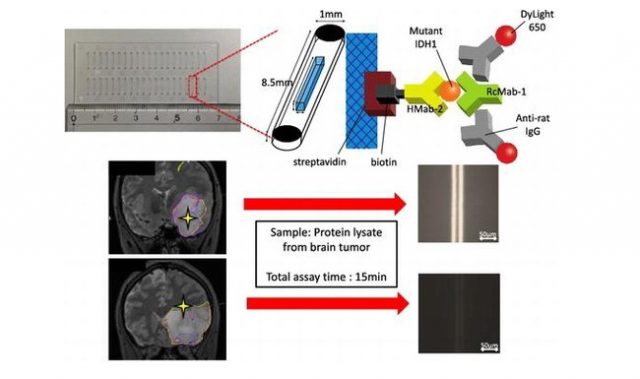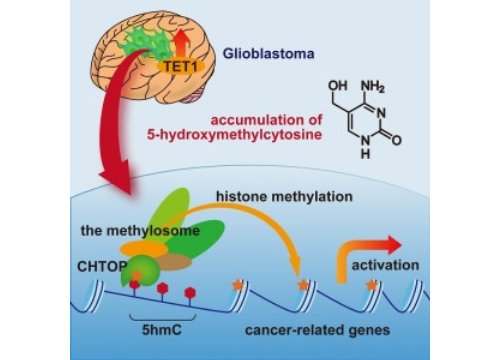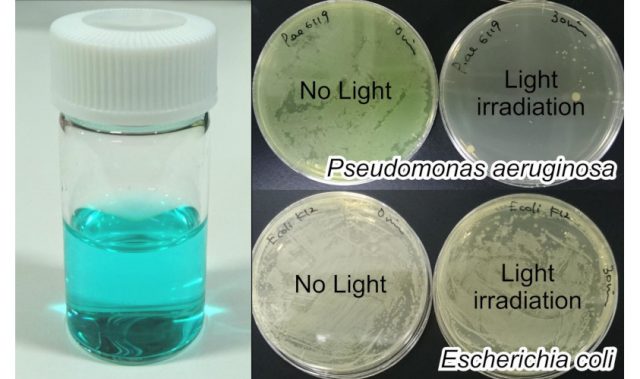
AsianScientist (Mar. 2, 2016) – A research team in Japan has developed a way to stop the growth of brain tumors in mice using T-cells, vital disease-fighting components in our body’s immune system. Their work was published in Cancer Immunology Research.
While there have been improvements in current standard treatments for brain cancers, patients with glioblastoma (GBM), the most common and aggressive form of brain tumor, still suffer from a low five-year overall survival rate of less than ten percent. There is, therefore, a pressing need for novel therapies that improve patient outcomes.
Immunotherapy represents a new wave of cancer treatment, with its efficacy being demonstrated in even the most aggressive types of cancer. Researchers at Nagoya University have been studying the therapeutic effect of T-cells, which hunt down and kill cancerous cells.
“We have successfully engineered T-cells that produce special receptors on their surface, called chimeric antigen receptors (CARs), which allow the T-cells to recognize specific proteins (antigens) expressed in GBM … [and] specifically target podoplanin (PDPN), a key protein for the progression of solid tumors, including GBM,” said Atsushi Natsume, corresponding author of the study.
The research team found that an injection of CAR T-cells into 79 immunodeficient mice arrested the growth of GBM in 60 percent of them. Furthermore, the T cells can recognize PDPN on the tumor surface even when the body’s own immune recognition system is compromised.
“Considering that PDPN is associated with poor prognosis in GBM, CAR T-cell therapy that targets this protein is promising for treatment of patients with relapsed or resistant tumors following first-line chemotherapy,” said co-author Professor Toshihiko Wakabayashi.
While there are certainly challenges to overcome for clinical application of this kind of immunotherapy, the newly published data are an important milestone in immunotherapy, targeting solid tumors that have eluded other treatments, Wakabayashi added.
The article can be found at: Shiina et al. (2016) CAR T Cells Targeting Podoplanin Reduce Orthotopic Glioblastomas in Mouse Brains.
———
Source: Nagoya University; Photo: NIH Image Gallery/Flickr/CC.
Disclaimer: This article does not necessarily reflect the views of AsianScientist or its staff.












